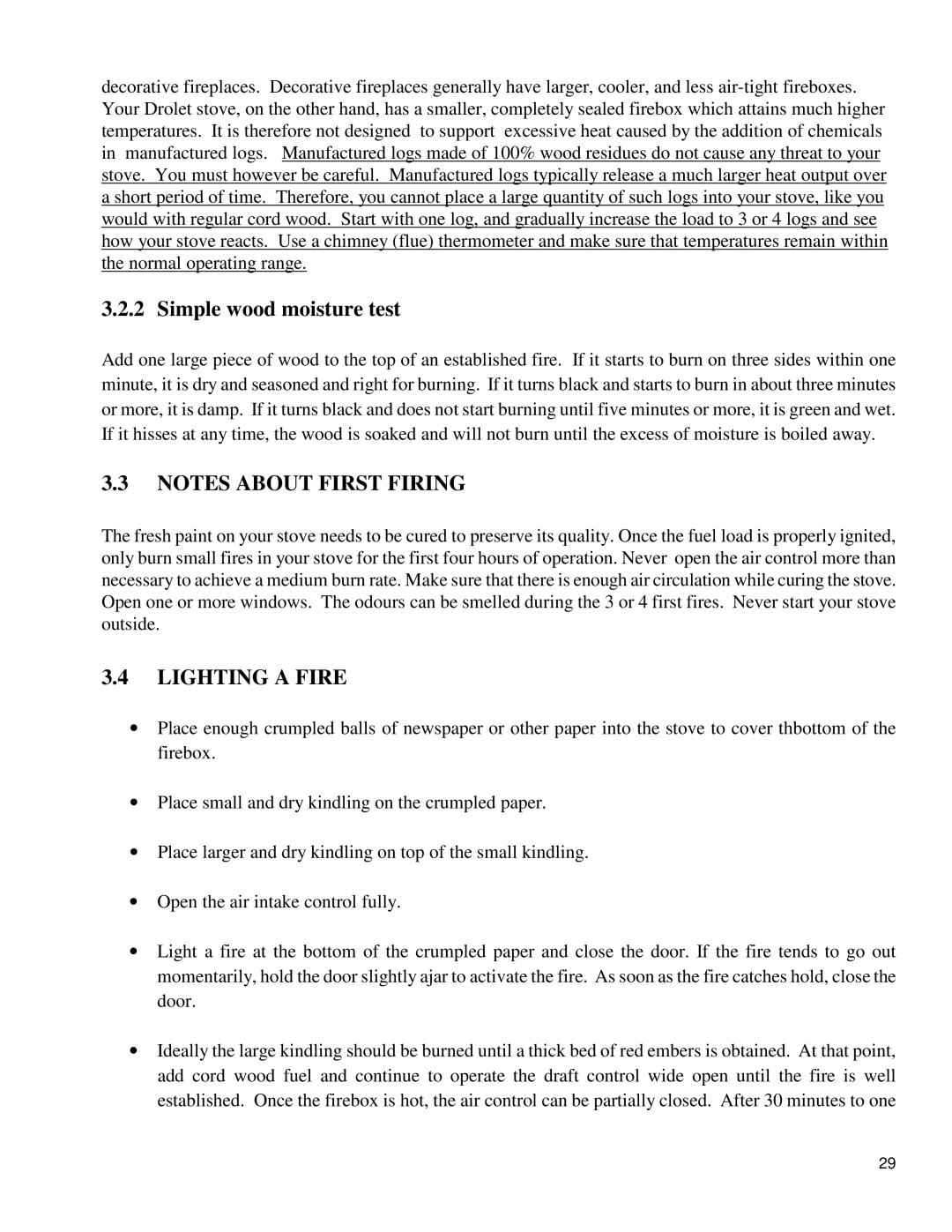DB03505 specifications
The Drolet DB03505 is a powerful and efficient wood stove designed to provide maximum heat output while also being environmentally friendly. Renowned for its innovative design and advanced technologies, this stove is an excellent choice for those seeking a reliable heating solution for their home or cabin.One of the standout features of the Drolet DB03505 is its impressive heating capacity. With the ability to heat spaces of up to 2,000 square feet, it is perfect for larger areas, making it a versatile option for various applications. Its robust design allows it to deliver a remarkable output of up to 85,000 BTUs, ensuring that homeowners stay warm even in the coldest conditions.
The DB03505 is equipped with a large firebox that can accommodate logs up to 20 inches in length. This feature not only contributes to longer burn times but also decreases the frequency of refueling, allowing for extended periods of warmth without constant attention. The stove is designed for efficiency, boasting a low emissions rating and meeting EPA 2020 standards, making it an eco-conscious choice.
Another significant characteristic of this model is its air wash system, which helps to keep the glass door clean and clear for an unobstructed view of the flames. This feature enhances both the aesthetic appeal and the functionality of the stove, making it a focal point in any room. Additionally, the secondary combustion system maximizes fuel use, ensuring that the wood burns more completely and efficiently, which translates into savings on fuel costs.
The Drolet DB03505 also features a sturdy construction, built using high-quality materials. Its heavy-duty plate steel ensures durability and longevity while maintaining efficient heat output. The stove's modern design allows it to fit seamlessly into a variety of home décors, whether traditional or contemporary.
Installation is straightforward, and the stove can be connected to a standard chimney system, ensuring proper ventilation and efficiency. With its combination of performance, efficiency, and aesthetic appeal, the Drolet DB03505 wood stove stands out as a premier heating option for those looking to enhance their home's comfort while being mindful of environmental impact.
